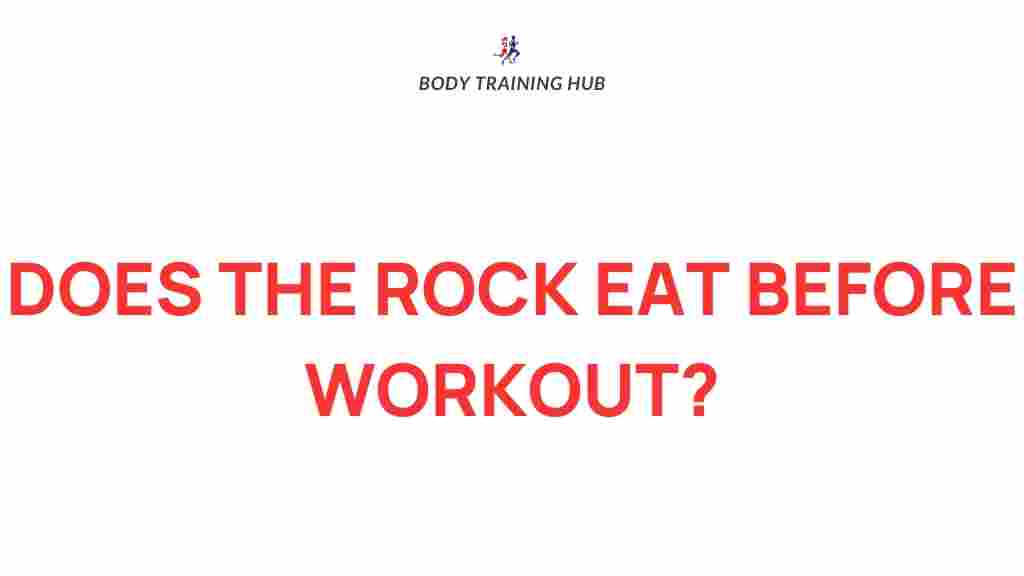Unveiling the Secrets of Pre-Workout Nutrition
Navigating the world of pre-workout nutrition can be overwhelming, especially with the plethora of information available. However, understanding how to properly fuel your body before engaging in exercise is crucial for maximizing performance and achieving your fitness goals. In this article, we will explore the essential components of pre-workout nutrition, offering practical tips to enhance your energy and improve your overall health.
Understanding the Importance of Pre-Workout Nutrition
Nutrition plays a pivotal role in your fitness regimen. The right diet not only fuels your workouts but also aids in recovery and enhances your overall athletic performance. Here are some reasons why pre-workout nutrition is vital:
- Energy Boost: Consuming the right nutrients before a workout provides a significant boost in energy levels.
- Improved Performance: Proper nutrition can enhance endurance, strength, and overall performance during exercise.
- Muscle Preservation: Adequate nutrition helps in preserving muscle mass and facilitating recovery.
- Enhanced Focus: A well-fueled body can improve mental clarity and focus during workouts.
Components of Effective Pre-Workout Nutrition
To craft an effective pre-workout nutrition plan, focus on three main macronutrients: carbohydrates, proteins, and fats. Here’s how each plays a role:
1. Carbohydrates: The Primary Fuel Source
Carbohydrates are the primary source of energy for your body, particularly during high-intensity workouts. Consuming carbs before exercising can help you maintain stamina and intensity. Consider the following:
- Types of Carbs: Opt for complex carbohydrates such as whole grains, fruits, and vegetables, which provide sustained energy.
- Timing: Aim to consume carbohydrates about 30-60 minutes before your workout for optimal results.
2. Proteins: Supporting Muscle Repair
Incorporating protein into your pre-workout meal can help in muscle repair and growth. Here’s what to consider:
- Sources of Protein: Lean meats, yogurt, eggs, and plant-based proteins like lentils and chickpeas are excellent choices.
- Portion Size: Aim for a moderate portion of protein (15-30 grams) to avoid discomfort during exercise.
3. Fats: A Secondary Energy Source
While fats are not the primary energy source during high-intensity workouts, they can provide a sustained energy release for longer sessions. Keep these tips in mind:
- Healthy Fats: Include sources like avocados, nuts, and olive oil, but keep portions small to avoid sluggishness.
- Timing: Consume fats at least 1-2 hours before exercising to allow for digestion.
Crafting Your Pre-Workout Meal
Now that you understand the components, let’s delve into how to create a balanced pre-workout meal or snack. Consider the following step-by-step process:
Step 1: Determine Your Workout Schedule
Identify when you’ll be working out. This will help you decide when to eat and what to consume.
Step 2: Choose Your Macronutrient Ratios
Based on your workout intensity and duration, select the appropriate ratios of carbohydrates, proteins, and fats. A common guideline is:
- For high-intensity workouts: 60% carbs, 25% protein, 15% fats.
- For moderate workouts: 50% carbs, 30% protein, 20% fats.
Step 3: Prepare Your Meal or Snack
Here are some quick and nutritious pre-workout meal ideas:
- Oatmeal with Banana and Almond Butter: A perfect combination of carbs and protein.
- Greek Yogurt with Berries: Provides protein and antioxidants.
- Whole Grain Toast with Avocado and Egg: A balanced option with healthy fats and protein.
Timing Your Pre-Workout Nutrition
The timing of your meal or snack is crucial for optimal energy levels. Here’s a general guideline:
- Small Snack: If you’re having a light snack, consume it 30-60 minutes before your workout.
- Full Meal: If you’re eating a full meal, aim for 2-3 hours prior to your workout.
Hydration: An Integral Part of Pre-Workout Nutrition
Don’t overlook hydration as part of your pre-workout preparation. Proper hydration helps maintain energy levels and performance. Here’s what to keep in mind:
- Drink Water: Aim for 16-20 ounces of water 2-3 hours before exercising.
- Electrolyte Balance: For longer workouts, consider beverages that replenish electrolytes, especially in hot weather.
Troubleshooting Common Pre-Workout Nutrition Issues
Sometimes, despite our best efforts, we may face issues with pre-workout nutrition. Here are some common problems and their solutions:
1. Feeling Sluggish or Heavy
If you feel sluggish during your workout, you might be consuming too much fat or protein too close to exercise. Solution:
- Opt for lighter meals and focus on easily digestible carbohydrates.
2. Upset Stomach
Eating too close to your workout or consuming high-fiber foods can lead to stomach discomfort. Solution:
- Experiment with meal timing and stick to low-fiber, easily digestible foods before workouts.
3. Low Energy Levels
If you consistently feel low on energy, evaluate your overall diet and ensure you’re consuming enough calories and nutrients throughout the day. Solution:
- Consider consulting with a nutritionist for personalized advice.
Conclusion: Fueling Your Fitness Journey
In conclusion, pre-workout nutrition plays an essential role in enhancing performance and maximizing energy during exercise. By understanding the importance of macronutrients, timing, and hydration, you can tailor your nutrition plan to suit your individual needs. Remember that finding the right balance may take some experimentation, but the benefits to your fitness journey are well worth the effort.
For more insights on nutrition and fitness, check out this helpful resource. Also, don’t forget to stay updated on the latest trends in fitness and nutrition by visiting this external link.
This article is in the category Nutrition Fundamentals and created by BodyTraining Team
